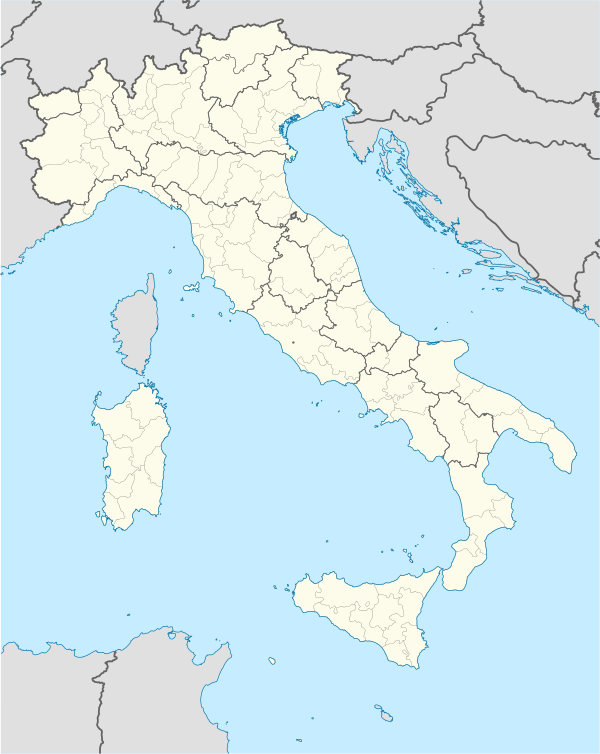Borgoforte
| Borgoforte | ||
|---|---|---|
| Comune | ||
| Comune di Borgoforte | ||
|
View of Borgoforte's train station. | ||
| ||
 Borgoforte Location of Borgoforte in Italy | ||
| Coordinates: 45°3′N 10°45′E / 45.050°N 10.750°ECoordinates: 45°3′N 10°45′E / 45.050°N 10.750°E | ||
| Country | Italy | |
| Region | Lombardy | |
| Province / Metropolitan city | Mantua (MN) | |
| Frazioni | Boccadiganda, Pioppelle, Romanore, San Cataldo, San Nicolò Po, Scorzarolo | |
| Government | ||
| • Mayor | Gianfranco Allegretti | |
| Area | ||
| • Total | 38.9 km2 (15.0 sq mi) | |
| Elevation | 19 m (62 ft) | |
| Population (Dec. 2004)[1] | ||
| • Total | 3,419 | |
| • Density | 88/km2 (230/sq mi) | |
| Time zone | CET (UTC+1) | |
| • Summer (DST) | CEST (UTC+2) | |
| Postal code | 46030 | |
| Dialing code | 0376 | |
Borgoforte was a comune (municipality) in the Province of Mantua in the Italian region Lombardy, located about 130 kilometres (81 mi) southeast of Milan and about 14 kilometres (9 mi) southwest of Mantua.
It is home to a Rocca (castle or fortress), founded by the House of Gonzaga in the 13th century. After various vicissitudes, it was an important stronghold of the Austrian Empire in the Kingdom of Lombardy-Venetia, being captured by Italian troops during the Third Italian Independence War in 1866.
In 2014 it was annexed by Virgilio which became the municipality of Borgo Virgilio.
References
- ↑ All demographics and other statistics: Istituto Nazionale di Statistica (Istat).
This article is issued from Wikipedia - version of the 6/24/2016. The text is available under the Creative Commons Attribution/Share Alike but additional terms may apply for the media files.
